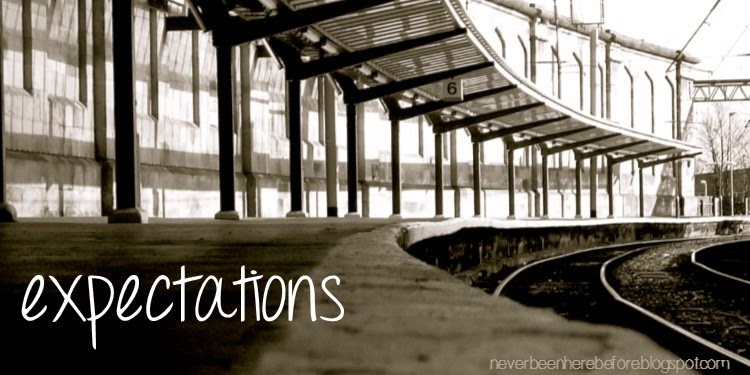blogging thru Scary Close - chapters 3 and 4
We all have a façade.
Maybe because everyone does, it makes having this façade seem
more acceptable in our minds. But the more I think about it, the angrier I get. I don’t want the façade a person puts in
front of me, and I really don’t want the façade of someone I’m close to and love
dearly. I want them.
I think this should profoundly shape how we understand love.
About 10 years ago, I was emailing back and forth with
someone who’d given me some really good advice on a message board (anyone
remember those? It seemed that’s all the internet was back then.) We continued
conversing over the course of several months, sharing struggles and life with each
other. And he told me a story that I’ve never forgotten.
One day he was sitting on the kitchen table with his mom and
he asked her why she loved his dad. She went on to list all of his wonderful
qualities, the things he did that made her happy, made her smile. “He’s a great
dad…. He cares for others so much… he makes me laugh… he’s there for me… he
keeps his promises.”
All these are great things, and certainly revealing of one’s
character. But after more digging he said, “Those are just the things he does. Why
do you love him?” and after some thought, she seemed to understand what her son
was really asking. She looked him right in the eye, shrugged, and said “I don’t
know, honey. I just do.”
What does this have to do with the façade we all have and
understanding love? Because the façade is
just the things we do that we think will make us more palatable to the world. But this isn’t truly who we are.
[Selah]
Because, come on. This is something to pause about.
While I believe that love results in a series of decisions
you make, I also know love is about connection… connection that often
doesn’t make sense and can’t be explained.
“Why do you love them?”
“I just do.”
In chapter 3 of Scary
Close is Don sharing about his time at Onsite, a Nashville retreat center providing workshops
to help a person heal and grow. In his time there he learned we create a false
self to cover our shame. This is the performer, the character we play in the
theater of life. There is usually some skill or characteristic that we believe
we make us likable to the rest of the world, and that is the characteristic we
put on our outer self. This is the façade.
It’s at this point that I realize where Don will
be taking us during this book. He is taking us on a journey to more fully accept
our story. (Accept seems to be the key word here.) Our story is integral not
just to understanding where we’ve been in our lives, but in understanding who we
are. Who we actually are.
“Sometimes the story we’re telling the world isn’t half as
enduring as the one that lives inside of us.” (pg. 22)
Chapter 4 is more of Don’s Onsite story, where he discovered
that at a young age a “pleasure chemical” seeped into him when he was told his
writing was smart. They weren’t allowed to tell each other what they did for a
living while there, and he realized that our jobs are like wearing costumes. We
use the things we do to sound impressive to the world.
But that isn’t who we are. We aren’t what we do, yet this is
what we use to show ourselves to the world. We are afraid that who we are minus
what we do isn’t enough.
There seems to be an honest acknowledgement of this truth at
this point in the book, but it’s more understood than actually named. (This is
a true characteristic of Don’s writing, now that I think about it.)
But how do we really love another? It is because of what
they do? Or who they are? Don doesn’t answer these questions, but they are
implied. It’s all part of the journey he is taking us on.
“I began to wonder what like would be like if I dropped the
act and began to trust that being myself would be enough to get the love I
needed.” (pg. 35)
How can this not profoundly affect how we understand love?
I know I keep saying this, but seriously… guys.
Whoa.



Comments
I can't help but wonder how this might be connected to an "aha" moment I had with my counselor yesterday. We were discussing my desire to live an authentic life, and I wondered if my authenticty could be intimidating to others. It shouldn't be, in theory, because as ministry leaders I believe in being open about our weakness and sin, as it should draw people to you, making people see you as more human than leaders are often seen.
But if we aren't careful, that authenticity can come across as self-righteousness. And in general, someone who is open about their struggles can be intimidating to those who hide them.
It's just so hard to navigate how people see you... I get frustrated at the thought that I have to worry about that, too. When it's hard enough just trying to be myself.